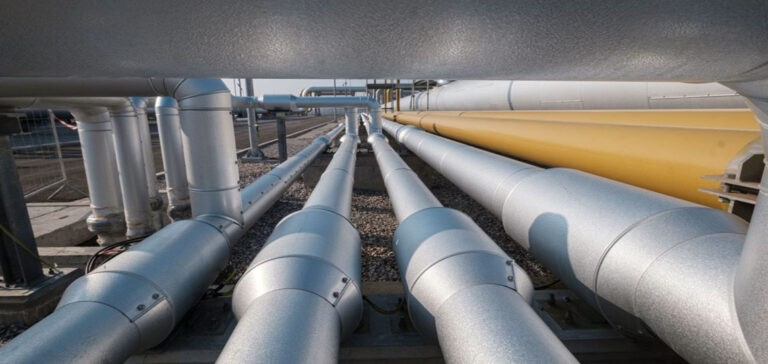Iraq’s agreement with Turkmenistan to import gas was recently approved. The authorities have announced that this act is crucial to its failing power generation. Iraqi power plants are ultra-dependent on gas supplied by influential neighboring Iran, which covers almost a third of Iraq’s energy needs. However, Teheran regularly cuts off its supply, exacerbating the electricity shortages that punctuate the daily lives of 43 million Iraqis.
As a result, the agreement between Iraq and Turkmenistan is of crucial importance for the country, which is plagued by persistent electricity shortages that affect the daily lives of its inhabitants. Gas, as an energy source, plays a vital role in power generation in Iraq, and over-reliance on Iran has been a major problem.
Diversifying energy sources
The Ministry of Electricity announced that this agreement is part of the Iraqi government’s program to diversify its energy sources to guarantee a stable and sustainable electricity supply. The aim is to reduce Iraq’s vulnerability to gas interruptions from Iran.
Regarding the routing of these imports, Iraqi Electricity Minister Ziad Fadel specified that “gas pipelines from the Islamic Republic of Iran, which are connected to Iraqi transport pipelines, will be used up to the power plants” in Iraq. This cooperation will strengthen regional energy connectivity.
This “preliminary agreement” concerns the import of around 25 million cubic meters of gas per day, according to an official from the Ministry of Electricity, specifying that this quantity covers “part” of the country’s needs. Negotiations will continue to increase this quantity.
Economic and energy issues
Why should this agreement matter, not only for Iraq, but also for the regional energy market? The answer lies in the economic and energy implications.
Hydrocarbon-rich Iraq faces a dual challenge: ensuring reliable energy supplies for its growing economy, while diversifying its energy sources to reduce its dependence on Iran. The agreement with Turkmenistan marks a significant step in this direction.
Prime Minister Mohamed Chia al-Soudani, brought into government by a coalition of pro-Iranian parties, regularly stresses the need for Iraq to diversify its energy sources. This diversification is essential to stabilize electricity production, support economic growth and improve the quality of life of Iraqis.
Hot summer weather in Iraq is increasing demand for electricity, making it even more critical to diversify energy sources to avoid daily load shedding. This challenge is all the more crucial in a country with a decaying infrastructure and plagued by corruption.
In conclusion, the gas import agreement between Iraq and Turkmenistan is a major development that reinforces Iraq’s energy stability while reducing its dependence on Iran. This has significant economic implications and helps to improve the quality of life of Iraqi citizens by ensuring a more stable electricity supply.
Final Analysis
This agreement between Iraq and Turkmenistan, although preliminary, is of crucial importance from both a financial and energy point of view. It will enable Iraq to diversify its energy sources, reducing its dependence on Iran for gas supplies. This diversification is essential to stabilize electricity production, support economic growth and improve the quality of life of Iraqis. It also strengthens regional energy connectivity, opening up new opportunities for the energy market. Ultimately, this agreement helps to solve Iraq’s energy challenges and promote its economic development, while meeting the daily electricity needs of its citizens.






















